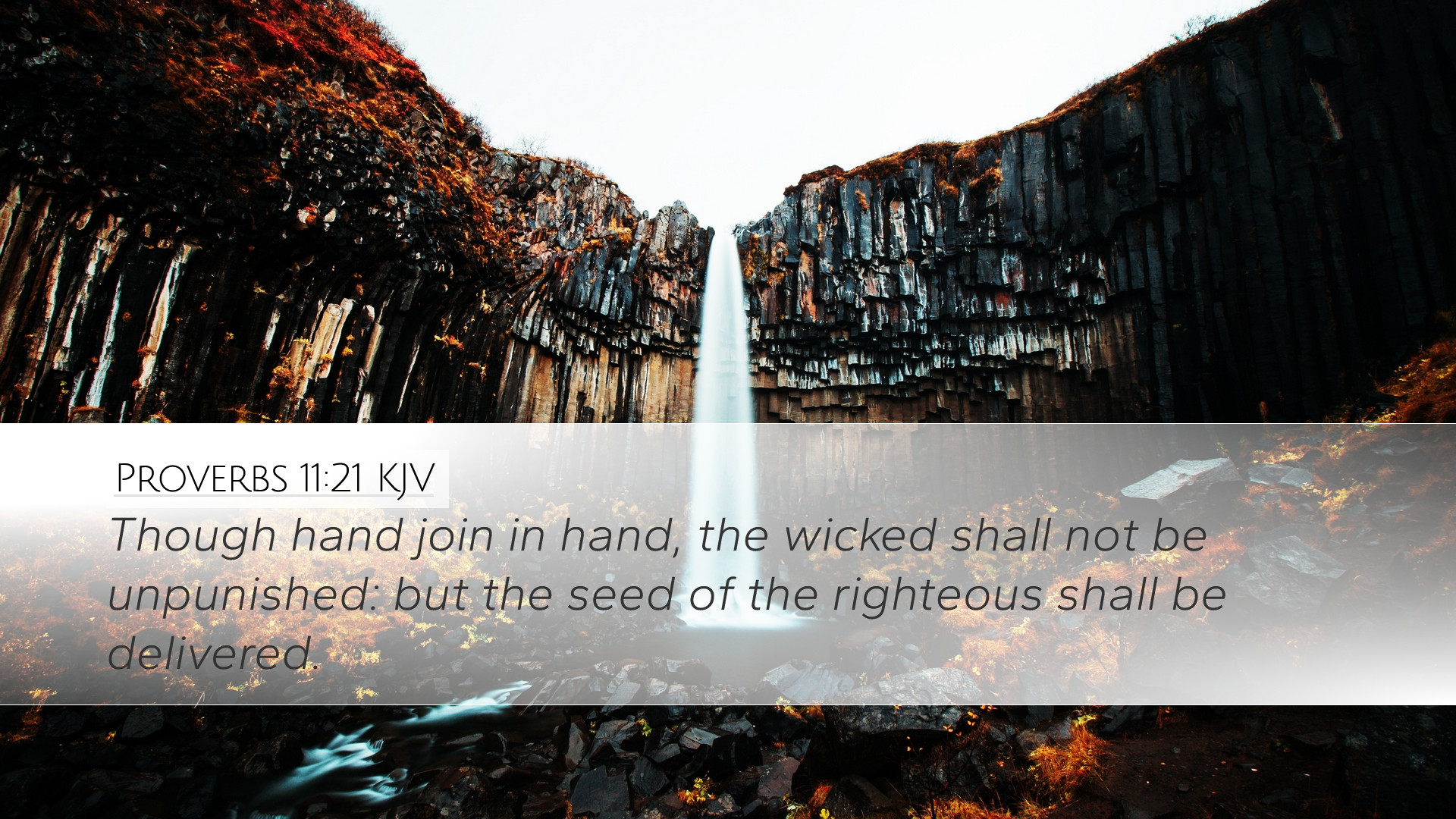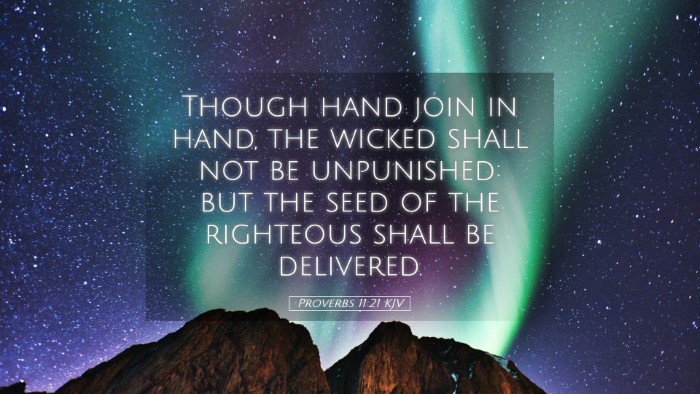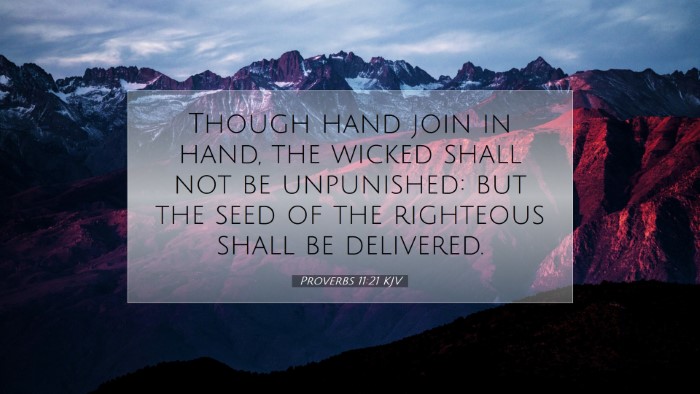Commentary on Proverbs 11:21
Bible Verse: "Though hand join in hand, the wicked shall not be unpunished: but the seed of the righteous shall be delivered."
Introduction
The verse in question, Proverbs 11:21, presents a powerful contrast between the fate of the wicked and the righteous. It highlights the inevitability of divine justice and the assurance of deliverance for those who are righteous. The commentaries of notable theologians such as Matthew Henry, Albert Barnes, and Adam Clarke provide depth and clarity to this text, making it particularly meaningful for pastors, students, theologians, and Bible scholars.
Contextual Analysis
This verse is situated within a collection of proverbs that stress the moral order of the universe—where good is ultimately rewarded and evil punished. Understanding this context is crucial for grasping its full implications.
Historical Background
In ancient Israel, wisdom literature such as Proverbs served as guidelines for living a righteous life. The sayings were meant to instill moral values and encourage adherence to God's laws.
Exegesis of Proverbs 11:21
The verse can be broken down into two main parts:
- The fate of the wicked: "Though hand join in hand, the wicked shall not be unpunished."
- The reward for the righteous: "but the seed of the righteous shall be delivered."
The Fate of the Wicked
Matthew Henry emphasizes that the phrase "hand join in hand" signifies a coalition of the wicked, possibly suggesting unity in sin. Despite their apparent strength in numbers, they cannot escape the consequences of their actions. God's justice prevails regardless of human arrangements.
Albert Barnes notes that this phrase serves as a warning against the delusion that social or political alliances can protect one from judgment. The wicked, regardless of their schemes or conspiracies, will face punishment for their transgressions.
Adam Clarke further elaborates on the futility of the wicked's unity. Their cooperation in wrongdoing does not shield them from divine retribution. Clarke illustrates this point by referencing other scriptures that affirm the certainty of punishment for those who live unrighteously.
The Reward for the Righteous
Conversely, the verse assures that "the seed of the righteous shall be delivered." This promise echoes throughout the Scripture, as God's faithfulness extends beyond individuals to their descendants. Matthew Henry highlights that righteousness brings not only personal deliverance but also blessings upon future generations.
Albert Barnes points out that this deliverance is rooted in God's covenant faithfulness and is indicative of a broader theme in Scripture where righteousness leads to enduring blessings. The righteous, regardless of their circumstances, hold a special place in God's economy of grace.
Adam Clarke adds that the deliverance of the righteous may be understood both temporally and eternally. While they may face trials, ultimate salvation is assured through faithfulness to God. Clarke underscores the importance of a righteous lineage and the hope it instills for future generations.
Theological Implications
The examination of this verse reveals profound theological truths concerning justice, mercy, and the nature of God's kingdom. Here are some key implications:
- The Sovereignty of God: The verse stresses that God is the ultimate judge who enforces justice. No amount of human collusion can thwart God's purposes.
- Hope for the Righteous: Those who live righteously can take heart in the assurance of their deliverance, offering comfort in times of distress.
- The Nature of Human Alliances: The unity of the wicked illustrates the inherent danger of relying on human strength and partnership for security instead of seeking God's provision.
- Legacy of Righteousness: The impact of a righteous life extends beyond the individual, influencing future generations positively.
Practical Applications
This verse and its accompanying commentary provide various practical applications for contemporary life:
- Encouraging Integrity: Leaders, pastors, and scholars can underscore the importance of integrity and the consequences of deviating from righteousness.
- Affirming Hope: In counseling and teaching, there is an opportunity to impart hope to those feeling overwhelmed by evil or injustice.
- Spiritual Legacy: Individuals are encouraged to live righteously, keeping in mind the impact of their actions on future generations.
Conclusion
Proverbs 11:21 serves as a sobering reminder of the divine principles of justice and mercy at work in the world. Through the insights of Matthew Henry, Albert Barnes, and Adam Clarke, we are encouraged to pursue righteousness and remain steadfast in the faith, knowing that God’s judgment is inevitable for the wicked while deliverance is promised to the righteous. This assurance not only equips believers to face challenges but also compels them to reflect on their lives and the legacies they will leave behind.


